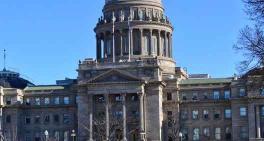Supreme Court blocks Louisiana abortion clinic law
Litigation Reports
A divided Supreme Court stopped Louisiana from enforcing new regulations on abortion clinics in a test of the conservative court's views on abortion rights.
The justices said by a 5-4 vote late Thursday that they will not allow the state to put into effect a law that requires abortion providers to have admitting privileges at nearby hospitals.
Chief Justice John Roberts joined the court's four liberals in putting a hold on the law, pending a full review of the case.
President Donald Trump's two Supreme Court appointees, Justices Neil Gorsuch and Brett Kavanaugh, were among the four conservative members of the court who would have allowed the law to take effect.
Kavanaugh wrote a dissenting opinion in which he said the court's action was premature because the state had made clear it would allow abortion providers an additional 45 days to obtain admitting privileges before it started enforcing the law.
If the doctors succeed, they can continue performing abortions, he said. If they fail, they could return to court, Kavanaugh said. The law is very similar to a Texas measure the justices struck down three years ago. Roberts dissented in that case.
But the composition of the court has changed since then, with Kavanaugh replacing Justice Anthony Kennedy, who voted to strike down the Texas law. Trump had pledged during the campaign to appoint "pro-life" justices, and abortion opponents are hoping the more conservative bench will be more open to upholding abortion restrictions.
Louisiana abortion providers and a district judge who initially heard the case said one or maybe two of the state's three abortion clinics would have to close under the new law. There would be at most two doctors who could meet its requirements, they said.
But the federal appeals court in New Orleans rejected those claims, doubting that any clinics would have to close and saying the doctors had not tried hard enough to establish relationships with local hospitals.
Related listings
-
Supreme Court returns to gun rights for 1st time in 9 years'
Litigation Reports 01/23/2019The Supreme Court said Tuesday it will take up its first gun rights case in nine years, a challenge to New York City’s prohibition on carrying a licensed, locked and unloaded handgun outside the city limits.The court’s decision to hear th...
-
California fight on Trump birth control rules goes to court
Litigation Reports 01/12/2019A U.S. judge will hear arguments Friday over California's attempt to block new rules by the Trump administration that would allow more employers to opt out of providing no-cost birth control to women.Judge Haywood Gilliam previously blocked an interi...
-
North Carolina Supreme Court throws 200th anniversary party
Litigation Reports 01/07/2019North Carolina's highest court is holding a "legal party" to observe the anniversary of its first meeting 200 years ago this month.The state Supreme Court scheduled a special session Monday in its downtown Raleigh courtroom to celebrate the court's b...

Does a car or truck accident count as a work injury?
If an employee is injured in a car crash while on the job, they are eligible to receive workers’ compensation benefits. “On the job” injuries are not limited to accidents and injuries that happen inside the workplace, they may also include injuries suffered away from an employee’s place of work while performing a job-related task, such as making a delivery or traveling to a client meeting.
Regular commutes to and from work don’t usually count. If you get into an accident on your way in on a regular workday, it’s probably not considered a work injury for the purposes of workers’ compensation.
If you drive around as part of your job, an injury on the road or loading/unloading accident is likely a work injury. If you don’t typically drive around for work but are required to drive for the benefit of your employer, that would be a work injury in many cases.
If you are out of town for work, pretty much any driving would count as work related. For traveling employees, any accidents or injuries that happen on a work trip, even while not technically working, can be considered a work injury. The reason is because you wouldn’t be in that town in the first place, had you not been on a work trip.
Workers’ compensation claims for truck drivers, traveling employees and work-related injuries that occur away from the job site can be challenging and complex. At Krol, Bongiorno & Given, we understand that many families depend on the income of an injured worker, and we are proud of our record protecting the injured and disabled. We have handled well over 30,000 claims for injured workers throughout the state of Illinois.




